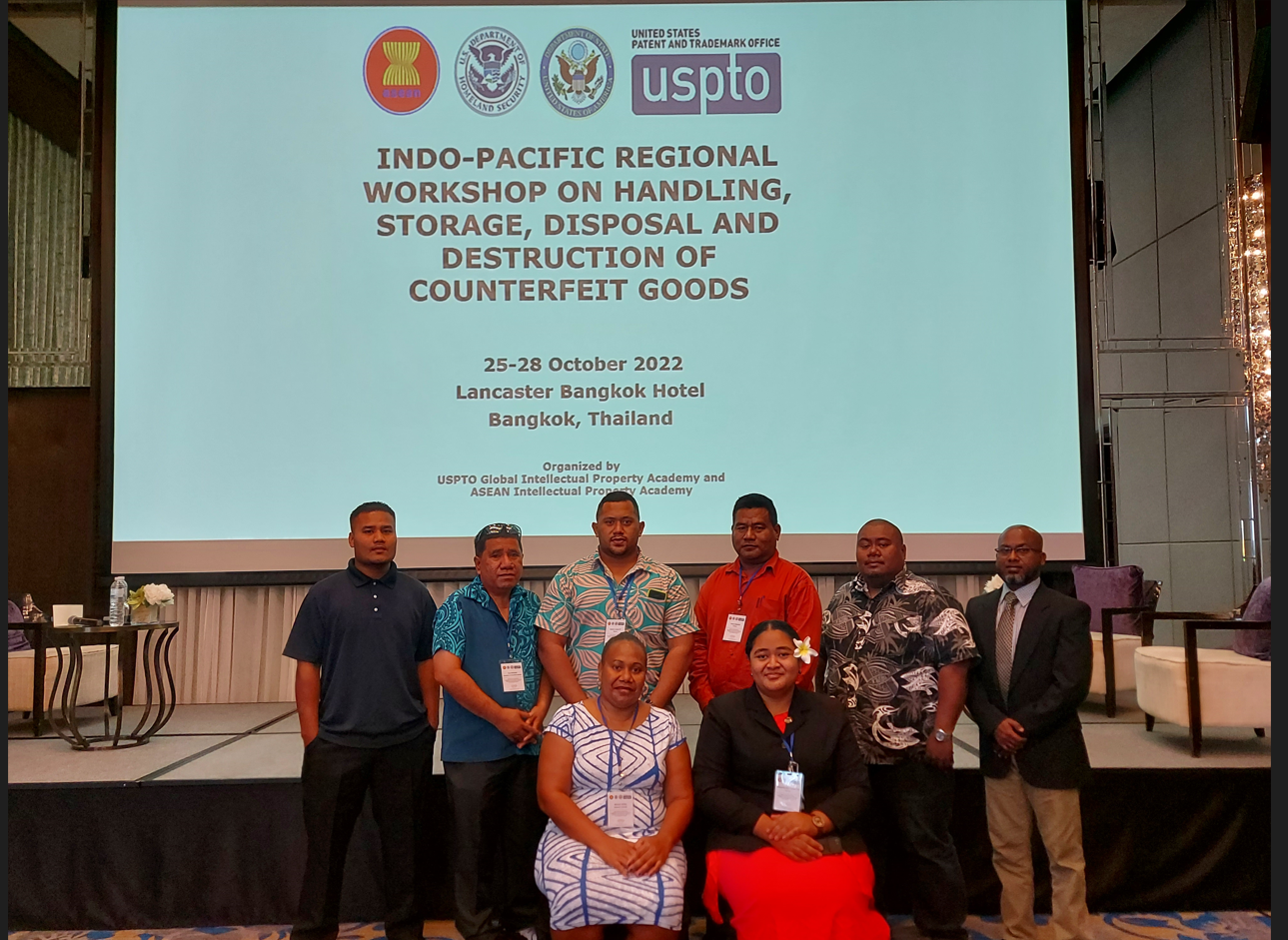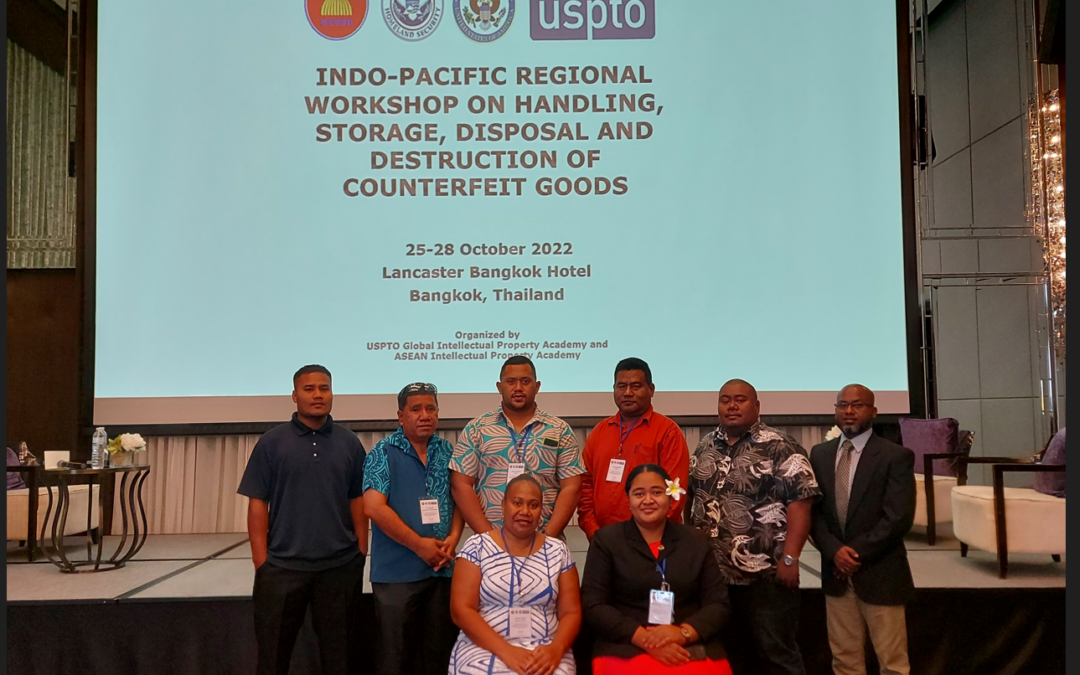Read this document in French:
Click on the language tab found at the bottom right of your screen and select French.


Suva, Fiji, November 28. The Oceania Customs Organisation secretariat continues to work with partners to improve the capacity of members in various areas of Customs work.
In the last two years, the United States Trademark and Patent Office has been supportive, supporting OCO members with training on Intellectual Property Rights.
From October 25-28, USPTO supported OCO and its members to attend the Indo-Pacific Regional Workshop on Handling, Storage, Disposal and Destruction of Counterfeit Goods that was held in Bangkok, Thailand.
Seven OCO members- Fiji, FSM, Kiribati, Palau, Samoa, Solomon Islands and RMI participated in the workshop with the Secretariat’s Customs Enforcement Advisor, Mohammed Ajaz.
The workshop was for Customs Officers and National Contact Points of Intellectual Property officers who would be the frontline officers in determining counterfeits upon inspection of the imported goods.
It aimed to create awareness and train the participants to distinguish genuine products and drugs from counterfeit products and substandard drugs; understand the standard guidelines and processes in handling, storage, disposal and destruction of counterfeit goods.
With a “train-the-trainer” format, the workshop also aimed to provide necessary skills to participants so that they are able to offer similar training and coaching to fellow officers of their own administrations.
The workshop had presenters from the several commerce and industrial group such as cosmetics, beverages, agrichemical, footwear and clothing, motor parts industry providing information on their products and the necessary methodologies of disposing, destroying or recycling the counterfeits of their industry which shall prevent economic and environmental health risk to the public.
The workshop recognized that the Pacific nations need to develop their legislation effective to empower the law enforcement officers in detaining, seizing and forfeiting counterfeit/fake goods. Many PICs have archaic laws in regards to the IPR monitoring and controls.
Because many Pacific Island nations have outdated laws in regards to IPR monitoring and controls, the workshop recognized that the Pacific nations needed to develop their legislation effective to empower the law enforcement officers in detaining, seizing and forfeiting counterfeit/fake goods.
“Having the necessary legal teeth to put the fakes out of the commercial market is the first step. Our members are working towards developing modern laws to combat IPR infringements in their countries,” Acting Head of Secretariat, Mrs. Irma Daphney Stone said.
“For OCO, we have signed an agreement with USPTO to work towards achieving the desired goal of empowering the Pacific Customs Administrations to enforce IPR laws.
“The secretariat is currently conducting a diagnosis of our members current status with their IPR legislations, the gap analysis will determine the work needed to align members with modern laws of international standards and best practice.”
Ends
For more information, queries, or interview requests, please email MediaOCO@ocosec.org
About OCO: OCO is a grouping of 23 customs administrations in the Pacific region. It facilitates regional cooperation, information sharing and capacity building of its members with the overall target of supporting economic growth and improved border security in the Pacific.
